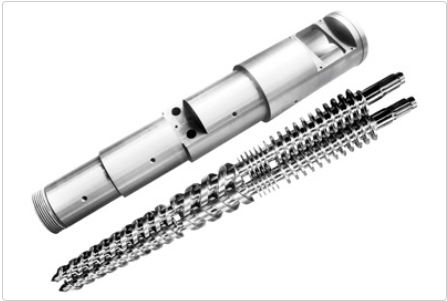Conical Twin Screw Manufacturers: Trends and Innovations

The polymer processing industry is constantly evolving, driven by the demand for higher efficiency, improved product quality, and sustainable solutions. At the heart of this evolution lies the technology of conical twin screw extruders, and the manufacturers who develop and refine these machines are pivotal in pushing the boundaries of what's possible. This article explores the current trends and innovations driving conical twin screw manufacturers, shaping the future of extrusion.
Enhanced Efficiency and Output
One of the primary trends dominating the conical twin screw manufacturing sector is the relentless pursuit of enhanced efficiency and output. Manufacturers are investing heavily in research and development to optimize screw designs, barrel configurations, and drive systems. This focus aims to maximize throughput while minimizing energy consumption. Advancements in screw geometry, such as improved mixing elements and optimized channel depths, contribute to better melt homogeneity and higher extrusion rates. Furthermore, manufacturers are incorporating sophisticated control systems that allow for precise process monitoring and adjustments, ensuring consistent product quality and maximizing operational efficiency.
The integration of advanced automation into conical twin screw extruders is also becoming increasingly prevalent. Automated material feeding, temperature control, and profile dimension monitoring systems are streamlining production processes, reducing manual intervention, and minimizing the risk of errors. This automation not only boosts efficiency but also enhances product consistency and reduces waste.
Focus on Material Versatility and Flexibility
The demand for greater material versatility is another significant trend influencing conical twin screw manufacturers. As polymer formulations become more complex and diverse, extruders need to handle a wider range of materials, including recycled plastics, bio-based polymers, and highly filled compounds. Manufacturers are responding by developing screw and barrel designs that can accommodate these challenging materials. This includes the use of wear-resistant materials for screws and barrels, specialized mixing elements for improved dispersion, and optimized heating and cooling systems for precise temperature control.
Flexibility is also a key consideration. Manufacturers are designing modular extruders that can be easily reconfigured to meet changing production requirements. This modularity allows for quick adjustments to screw configurations, barrel lengths, and die designs, enabling manufacturers to adapt to different product lines and market demands. This flexibility is particularly important in industries where product lifecycles are short and customization is essential.
Sustainability and Circular Economy
The growing emphasis on sustainability and the circular economy is driving significant innovation in the conical twin screw manufacturing sector. Manufacturers are developing extruders that can efficiently process recycled plastics, reducing reliance on virgin materials and minimizing waste. This includes the development of robust screw designs that can handle contaminated or inconsistent recycled feedstocks.
Furthermore, manufacturers are focusing on reducing the energy consumption of their extruders. Innovations in drive systems, heating elements, and insulation are contributing to lower energy costs and a smaller environmental footprint. The integration of energy recovery systems, such as heat exchangers, is also becoming more common.
Digitalization and Industry 4.0
The principles of Industry 4.0 are transforming the manufacturing landscape, and conical twin screw manufacturers are embracing digitalization to enhance their products and services. The integration of sensors, data analytics, and cloud computing is enabling real-time monitoring of extruder performance, predictive maintenance, and remote diagnostics.
This digitalization allows manufacturers to optimize process parameters, identify potential issues before they lead to downtime, and improve overall operational efficiency. Furthermore, digital platforms are facilitating remote support and training, enabling customers to maximize the performance of their extruders.
Looking Ahead
Conical twin screw manufacturers are at the forefront of innovation in the polymer processing industry. The trends and advancements outlined above are shaping the future of extrusion, driving the development of more efficient, versatile, and sustainable solutions.
As technology continues to evolve, manufacturers will undoubtedly continue to push the boundaries of what's possible, enabling the production of high-quality products with minimal environmental impact.
- Questions and Answers
- Opinion
- Motivational and Inspiring Story
- Technology
- True & Inspiring Quotes
- Live and Let live
- Focus
- Geopolitics
- Military-Arms/Equipment
- Securitate
- Economy/Economic
- Art
- Causes
- Crafts
- Dance
- Drinks
- Film/Movie
- Fitness
- Food
- Jocuri
- Gardening
- Health
- Home
- Literature
- Music
- Networking
- Alte
- Party
- Religion
- Shopping
- Sports
- Theater
- Health and Wellness
- News
- Culture

